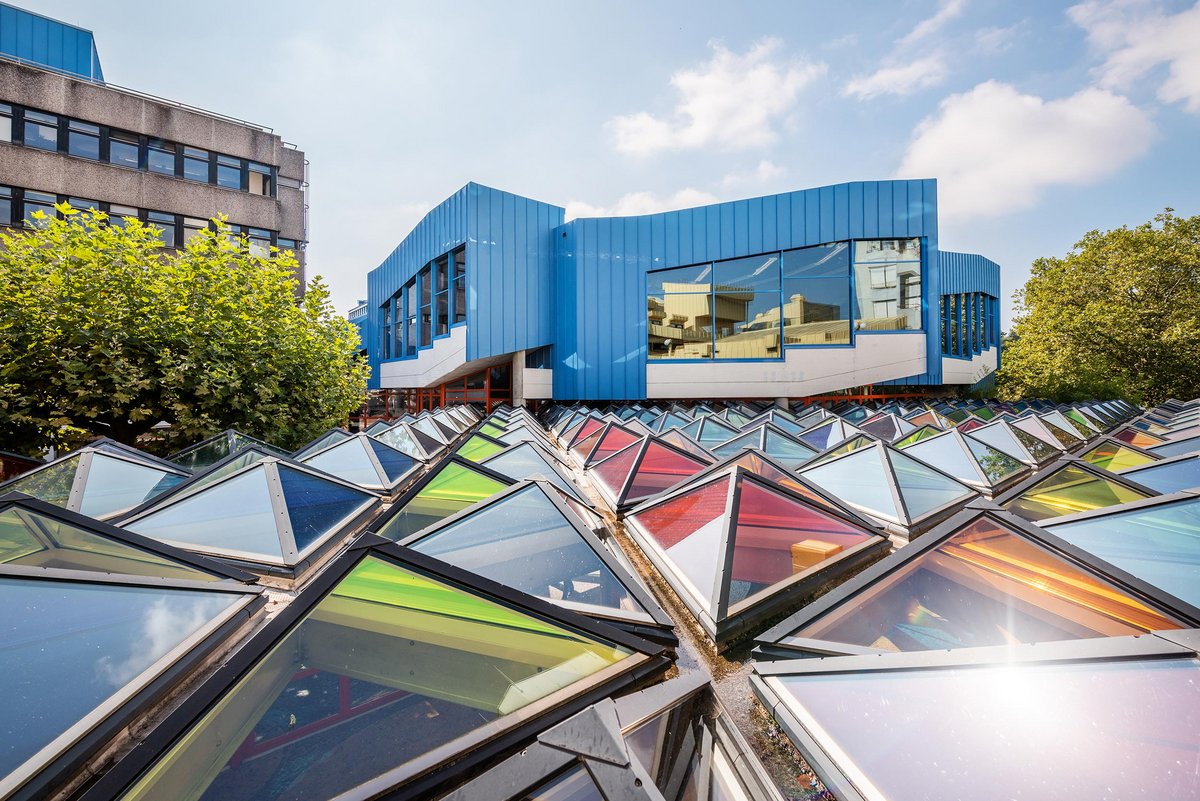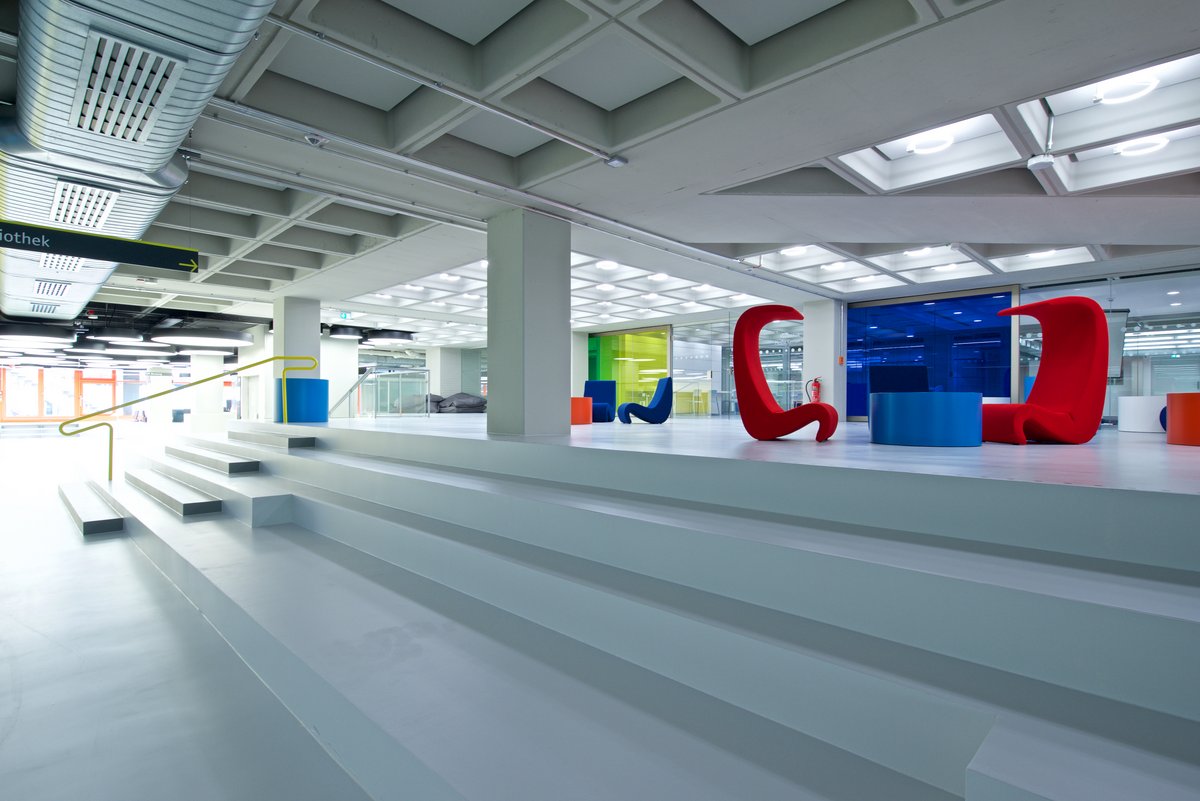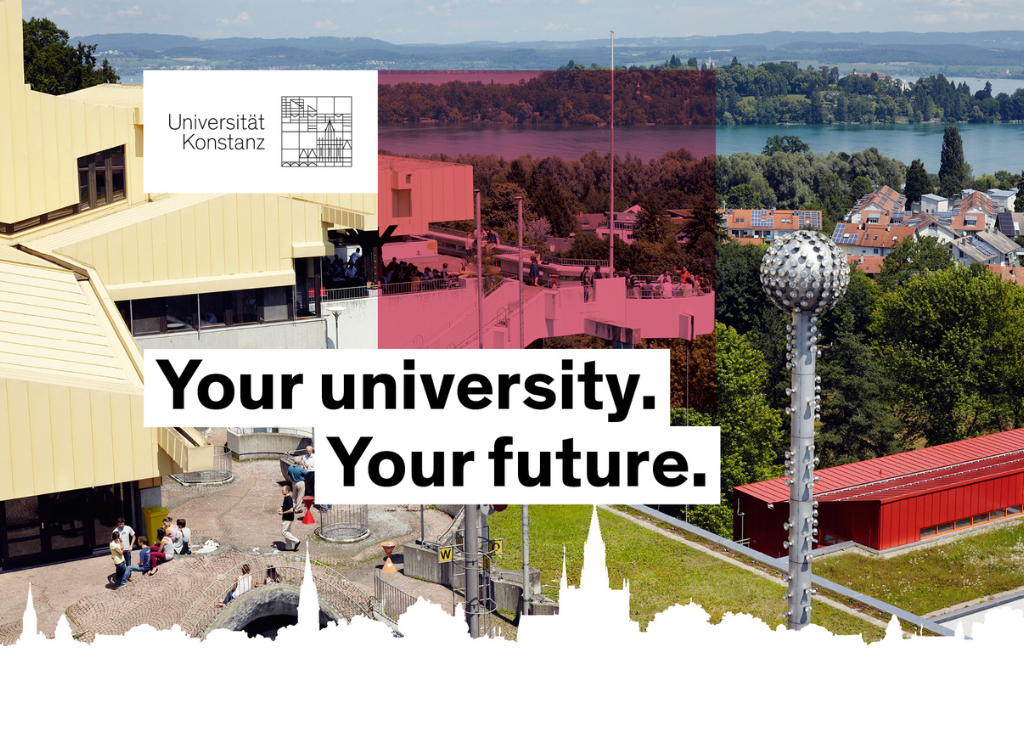
Latin – Master of Education (Teaching degree)
Our Bachelor and Master of Education programmes in Latin consist of cultural, literary and linguistic modules. The literary modules will teach you how to read and understand ancient texts in their historical, cultural and social contexts. You will study Latin literature from its origins to late antiquity and gain insight into the impact the Latin language and Roman culture had during the Middle Ages and modern era. You will be introduced to various methodologies from literary theory, literary history as well as cultural studies and cultural theory. In the linguistic modules you will become proficient in classical Latin and acquire knowledge of the metrics, structure and history of Latin. Courses on the culture of antiquity and its reception (e.g. epigraphy, mythology, philosophy, religion) as well as courses on teaching methodology and educational science complement your curriculum.
Why study Latin in Konstanz?
In Konstanz you will study in a special, interdisciplinary environment: Since Latin is taught in the Department of Literature, Art and Media Studies, which is also home to the modern philologies as well as ancient history and archaeology, you will gain comprehensive insights into the cultures of antiquity. This broad range of courses gives you the opportunity to individually shape your studies. Teaching is based on current basic research in literature and cultural sciences, covering a wide spectrum from Greek and Roman literature through to late antiquity, including the history of its reception. We offer several-day excursions into the Roman cultural area on a regular basis. The diversity of course formats, (lectures, tutorials, seminars, colloquia) in which you will become acquainted with philologically analysing and scientifically dealing with ancient texts, as well as the excellent staff-student ratio enable you to intensively study Latin literature and Roman culture. At the beginning of your studies, tutorials complement the courses, with more advanced students helping you in implementing the subject-related content. Seminars on teaching methodology also prepare you to practically apply your knowledge. At the University of Konstanz, you have access to a broad range of additional support services, for example: academic writing, planning a study abroad stay, learning additional foreign languages.
Study content
Prospects
Career prospects
Once you have earned the degree Master of Education you can apply for the Referendariat (18 months of teacher traineeship) in Baden-Württemberg (and under certain conditions in other federal states, too). At the end of the Referendariat you will take the Staatsexamen (state examination). Having passed your first state examination, you may apply to work at a public school in Baden-Württemberg (and, in certain circumstances, in other federal states).
You will find further career perspectives in the interview series #dreamjob - Starting a career. Here, alumni of the University of Konstanz report on their personal career entry.
Study structure
Start of study
Winter semester | Summer semester
Study structure
The master’s programme usually takes four semesters to complete. Graduates are awarded the academic degree of “Master of Education”. You will be taking two major subjects as well as classes in educational science including a practical teaching semester. A total of 120 ECTS credits (cr) is required.
You can find an overview of teacher education here.
Erweiterungsfach (additional subject)
If you are enrolled in a Master of Education programme, you may opt to study an Erweiterungsfach (additional subject) as a separate master's programme. You can start taking courses in your additional subject during your Bachelor of Education programme and even complete the relevant coursework and performance assessments. These may be recognised once you start your Master of Education programme. Please consult the director of the departmental administration first.
You can study one of these as an additional subject:
- Chemistry (90 ECTS-Credits)
- Computer Science (120 ECTS-Credits)
- German (120 ECTS-Credits)
- English (120 ECTS-Credits)
- History (120 ECTS-Credits)
- Italian (120 ECTS-Credits)
- Mathematics (120 ECTS-Credits)
- Philosophy/ Ethics (120 ECTS-Credits)
- Physics (120 ECTS-Credits)
- Russian (120 ECTS-Credits)
- Spanish (120 ECTS-Credits)
The following subjects are not available for study as additional subjects: biology, political science, sport, economics.
These documents will support you in planning your studies:
Opportunities for additional training
At the University of Konstanz, you have a broad range of opportunities and training options that complement your study programme, for example orientation programmes to support new students, learning guidance, language courses, a data and information literacy programme as well as options promoting career-oriented skills and social commitment.
Skills for successful studies- GoMINt – orientation programme in STEM subjects
- Writing Centre – writing tutoring, joint writing sessions and workshops
- Language courses at the Language Institute
- Learning guidance, study tips, time management – workshops offered by the Central Student Advisory Service (ZSB)
- Advanced Data and Information Literacy Track (ADILT) – programme can be completed with a certificate
- Transfer – practical projects (research, business, politics and society)
- qualification N – Sustainability Certificate at the University of Konstanz
- Profil+ – programme for career skills (German skills required)
- Career Passport – programme for career skills (for international students)
- Advice on career entry, opportunities and workshops from Career Service
Internships and stays abroad
Internship
You will complete a practical teaching semester (12 weeks) during the master's programme.
Stay abroad
We recommend that you spend at least a few months abroad to acquire language skills and intercultural competencies that supplement your study programme. Your departmental student advisory service and the International Office will be happy to support you in this.
Impressions from students and lecturers
Hear from students and lecturers
In our interview series, students talk about their subject, teachers explain the department's research and tell you what topics they cover in seminars and lectures.
- Students report: Elisa Immler, M.Ed. German and Latin
- Students report: Petra Plautz, PhD in Latin Literature
Get an impression
Discover online lectures and websites with more information about your prospective subject.
Study requirements
Admission requirements for studying
Admission requirements for the master of education programme (Gymnasium) with two majors (not including the special cases "Music" and "Erweiterungsfach" (additional subject))
- Completed bachelor’s degree in teacher education "Gymnasium" with two majors or an equivalent degree.
- In exceptional cases, admission to the master's programme is possible for graduates of a six-semester bachelor’s programme in a specific subject completed at a German university or equivalent institution of higher education in Germany if the programme contained elements of teacher education (see a – d). The same applies to graduates of a bachelor's programme in teacher education for other schools than the "Gymnasium".
Applicants have to document the following:
- a) a minimum of 64 ECTS in each major
- b) a minimum of 5 ECTS in the teaching methodologies of each major
- c) a minimum of 12 ECTS in educational sciences
- d) a three-week orientation internship at a "Gymnasium", a vocational school or a "Gemeinschaftsschule" with upper secondary level students, or an equivalent school internship
- You can complete up to 50 ECTS of missing elements during the master's programme, but they have to be completed by the time you register for your master’s thesis at the latest.
Elements you cannot complete during the master's programme:
- Teaching methodology courses (see b) as well as the orientation internship in a school (see d). You must document having completed these by the application deadline. Exception: you can complete the teaching methodology courses (see b) later if you apply for one of the following subject combinations: physics/mathematics or physics/computer science.
- In the subjects listed below the following elements cannot be completed during the programme, but have to be documented by the application deadline:
- Biology: Lab course on chemical operations "Chemische Operationen", lab course on cell biology/microscopy "Zellbiologisch-histologisch-mikroskopischer Kurs"
- Political Science: Performance assessments and coursework in seminars (you can complete those for lectures later)
- Sports: Practical sports coursework (modules 5-7 of the bachelor's programme in Sports (teacher education))
Admission restrictions for Biology, Political Science and Sports
Please note that the three majors Biology, Political Science and Sports are programmes with restricted admission. Admission is based on a selection process carried out by the University of Konstanz.
Further information can be found in the admission regulations.
Fees
Semester fee
All students enrolled at the University of Konstanz are charged a semester fee each semester, similar to all other German universities. Here you can find the current semester fee and its individual components.
Tuition fees for first degree studies for certain international students
Since winter semester 2017/18, the state of Baden-Württemberg has required some international students to pay tuition fees for their first degree studies. The following students are not required to pay tuition fees: citizens of a country within the European Union (EU) or the European Economic Area (EEA), doctoral students and certain “Bildungsinländer” (e.g. non-EU citizens with a German “Abitur”). More detailed information can be found here.
Each year, the University of Konstanz grants exemptions to a limited number of particularly gifted international degree-seeking students in accordance with the university’s “Begabtenbefreiungssatzung” (statutes governing the exemption of gifted students). More detailed information can be found here.
Tuition fees for second degree studies for all students
All students are required to pay tuition fees for their second degree studies. More detailed information can be found here.
Required language skills
You need to provide documentation of having earned both the Latinum and the Graecum, either by submitting your higher education entrance certificate if you received the required training at school, or another certificate. Students who did not produce evidence of the required language skills during their bachelor’s programme at the University of Konstanz may be able to do so during their first semesters by attending the preparatory courses offered by the Department of Literature and by taking the state examinations. The required documentation must be produced by the time you register for your master’s thesis.
Required German language skills
International applicants need documentation of their german language skills, level DSH-2 or TestDaF 4. Alternatively, you may submit other recognised language tests or recognised school certificates. The University of Konstanz does not offer preparatory German language courses or approved German language exams. For this reason, you must submit accredited proof of your German language skills along with your application.
Teaching and examination language
The language of instruction and examination is German. Some courses may also be held in English.
Interests and skills
You enjoy reading literary and academic texts and are prepared to deal with sometimes difficult academic texts. You are deeply interested in the Latin language. You are willing to scientifically and methodically deal with language and literature and are keenly interested in history and culture.
As a teacher you need a variety of skills and competences. You should of course be fascinated by the contents of your subject, and at the same time enjoy sharing your knowledge with your young students. You will need to be able to develop teaching concepts, sometimes with your teacher colleagues, and you will need to demonstrate a high level of educational skills in your daily work with children and adolescents. In addition to this, you will need a variety of social competencies. These include communication skills, the ability to deal with conflict, resilience and the ability to inspire and motivate. These skills will also help you when interacting with parents. You are basically responsible for creating a positive learning environment which enables your school students to develop and become well-equipped for the challenges of the future.
Application
Application and application documents
Application documents
You will find an overview of the required application documents in your application for admission, which you will receive at the end of your online application.
An application is possible during the following period: 07.05. - 15.07. | 29.11. - 15.01.
There may be other deadlines if you are applying for admission to a higher semester (for instance, if you are changing subjects or universities). For more information please consult the
university website
.
Contact
Contact person
The Central Student Advisory Service (ZSB) can help you with general questions about finding the right study programme as well as when you are concerned or unsure about your studies. We will be happy to advise you and support you with a wide range of services .
Central Student Advisory Service (ZSB)
Room: D 409 – 412a
Make an appointment: termin.zsb@uni-konstanz.de
Questions related to the content or organization of the study programme:
Departmental student advisory service
Florian Schönhuber
Contact person room G 110
Phone: +49 7531 88-4108
Email: lehramt.sprachen@uni.kn
Studying at the University of Excellence Konstanz
With your university entrance qualification in your pocket, the sky is the limit. Get a top education at the University of Konstanz, benefit from outstanding teaching and interdisciplinary exchange on our international campus. Situated on a hilltop overlooking Konstanz with a great view of Lake Constance and the Alps, our nationally and internationally renowned research university has been recognized as a University of Excellence since 2007.
Top ratings in the CHE University Ranking regularly confirm the quality of our study programmes. Take your pick from more than 100 programmes! Our courses are close to research and will perfectly equip you for the future, especially in combination with practice-oriented, socially relevant transfer projects, opportunities for going abroad and qualification programmes that you can complete alongside your studies.





